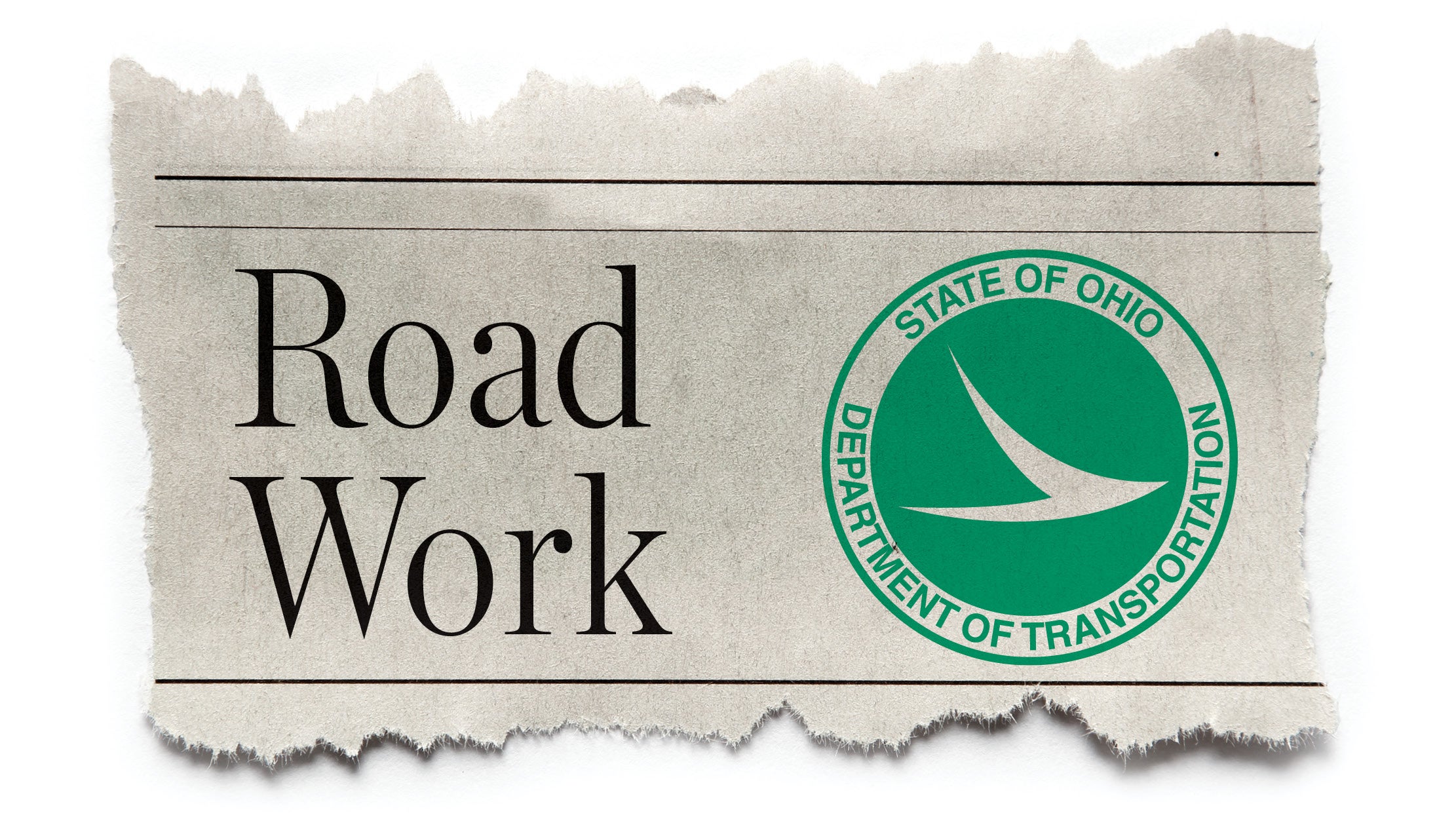Past is prologue
Published 12:00 am Thursday, December 1, 2022

- Dr. Corley Dennison, of Ona, West Virginia, a former dean of the W. Page Pitt School of Journalism and Mass Communications at Marshall University, associate vice president for academic affairs for the university and vice chancellor for academic affairs for the West Virginia Higher Education Policy Commission, has written the novel “When the Center Held True,” published this year by Plum Orchard Press. (The Ironton Tribune | Heath Harrison)
Local author’s novel ties Civil Rights era to present day
The 1960s marked a time of great change for the United States, both culturally and politically, and for many who grew up in that era, the struggles they witnessed or took part in remain relevant today.
Author Corley Dennison says this was one of his motivations for writing the novel, “When the Center Held True,” which was released this fall.
Dennison, of Ona, West Virginia, who is retired from nearly five decades in education and broadcasting, served as dean of the W. Page Pitt School of Journalism and Mass Communications at Marshall University, as well as associate provost for the university, followed by seven years as vice chancellor for the West Virginia Higher Education Policy Commission.
“Clay Spurgeon is white and is born in West Virginia,” he says of the story’s protagonist. “His father works in high steel and is on the road. He decides to take a job with a manufacturing company in Ohio. They move there with the understanding that they’re going to get transferred, and, at some point, they do get transferred and end up in Virginia.”
It is there that Dennison says Clay is on hand as the county and state are embroiled in the fight over school segregation.
“It was mandated integration,” Dennison said. “Basically, Virginia had what was known as ‘freedom of choice.’ What would happen is, when parents would sign up students for school and they would be asked, ‘Where would you like to attend school?’ In 1968, the Supreme Court ruled that was a de facto form of segregation, and that the state needed to shift the burden of integration from the state to the student.”
As a result, in 1969, Virginia fully integrated their public schools.
“Along the way, there are choices that Clay has to make,” Dennison said. “And he tries to do the right thing. He also happens to be the center on the high school football team, which is where the name of the book comes from.”
Publisher John Patrick Grace says the title has a deeper meaning.
“He’s the center on the team and ends up as the moral center in this period of integration,” Grace said.
Dennison’s book is published through Grace’s Plum Orchard Press, an imprint of Ironton-based Ohio Valley Learning Resources.
He said this was his first attempt at a novel.
“Obviously, I had done a lot of writing before,” he said. “But it was for radio or memos or technical writing. This was my first stab at writing in novel form. I sat a goal and decided to write 1,000 words a day. I didn’t always meet that, but it ended up being 90,000 words.”
Dennison said it took about eight months to write. As for the story, he said it is something for which he has had elements his entire life.
He cites an interview with actor Billy Bob Thornton, discussing his character in the film “Slingblade.”
“He said, ‘I’ve known Carl all of my life,’” Dennison said. “And these are stories I’ve always been around.”
As an example, he points to the opening of the book, shortly after the assassination of President John F. Kennedy when Clay is weighing the meaning of that day.
“Clay thinks back to the time his cousin Alf came to dinner,” Dennison said. “Cousin Alf was an operative in the Democratic primary and tells this story of how votes were bought in his particular county. Those are stories I heard around the kitchen table and at Sunday dinners at my grandmother’s as a kid. They’re things I’ve collected my whole life.”
Dennison said he opened with Kennedy, as he was the one who introduced civil rights legislation, though it was stalled in Congress.
“[Lyndon B.] Johnson pushed it through, but it was Kennedy who introduced it,” he said. “My dad actually did some organizing for Kennedy and was on the town council. Slim, Clay’s father, is a union blue collar Democrat. Blue collar workers would have been Democrats in the 1960s, but that has changed.”
While a work of fiction, the novel has autobiographical elements. Dennison played center on his high school team and, like Clay, worked in radio.
“Radio was really important then,” he said. “It’s lost so much stature as a medium. In the day, people under 21 or so – it was their main means of communication – whether it was hearing new songs, the news, if schools were open or closed. Instead of phones, you had little, battery-powered transistor radios. It was really important to popular culture then.”
This comes into play in the story when Clay volunteers for an air shift at a local women’s college.
“It’s a highly-selective, private college named Maryanne Randolph Custiss College. It is Robert E Lee’s wife’s name and the college is emblematic of the old south,” Dennison said. “He gets this radio program and the station manager kind of takes a liking to him. He starts bringing him into some news things and ends up getting him a job as a stringer with United Press International. This allows him to get into local school board meetings as they’re moving toward integration.”
The culture of radio plays prominently in the book, with popular music of the era a running theme, from Clay listening to a soul station out of Lynchburg, Virginia, which becomes his favorite, to his reflecting on the Beatles’ “Abbey Road” and the Rolling Stones’ “Let It Bleed” when contemplating the events of the novel.
Dennison said he connected with Grace, who has worked with a number of local authors and teaches life writing classes locally, after he finished a draft.
“He made suggestions that really improved it, especially on the front end,” Dennision said.
Grace said he thinks the biggest one for the novel, originally title “Appalachian Highway,” was to urge a stronger focus on the racial theme.
“And I think it came through really well,” Grace said.
One key part of the story involves the presidential election of 1968, when Clay stays up to watch the returns.
“In 1968, according to historian Jon Meacham, it was the first time all Americans could vote freely,” Dennison said.
While the Voting Rights Act guaranteed Black voters access to the polls, the election still saw independent candidate, segregationist Alabama Gov. George Wallace, carry the south and amass one of the highest totals of a third party effort in U.S. history.
“Clay talks to his dad about it,” Dennison said of the results. “And, again, with elections, it circles back around again, as we’ve been having issues of whether our elections are free and fair.”
Grace said, in promoting the book, they hope to work with the universities Dennison has been affiliated with, as well as high schools.
Dennison said the story shows the macro and micro effects of political events.
“On the macro level, you had the passage of the Civil Rights Act and Voting Rights Act,” he said. “On the micro, it’s how things that happen in government do sometimes affect people in their daily lives. I think a lot of time, people think, ‘The government in Washington. They do what they do. We’re down here and it doesn’t affect us.’ But it does. They don’t realize how it feeds into fabric of their daily lives. The Civil Rights Act and Voting Rights Act made integration possible. All that pushed daily life forward in this small county in Virginia.”
Dennison said many of the issues in the book are still in the headlines today.
“And I wrote the book because I think there are things happening then that are relevant now,” he said. “You had issues with the school board meetings. You had issues with who should control public schools. We still have issues with racism in this country. I thought there were things happening then that would bear relevance to today.”
— “When the Center Held True” is available at bookstores locally.




